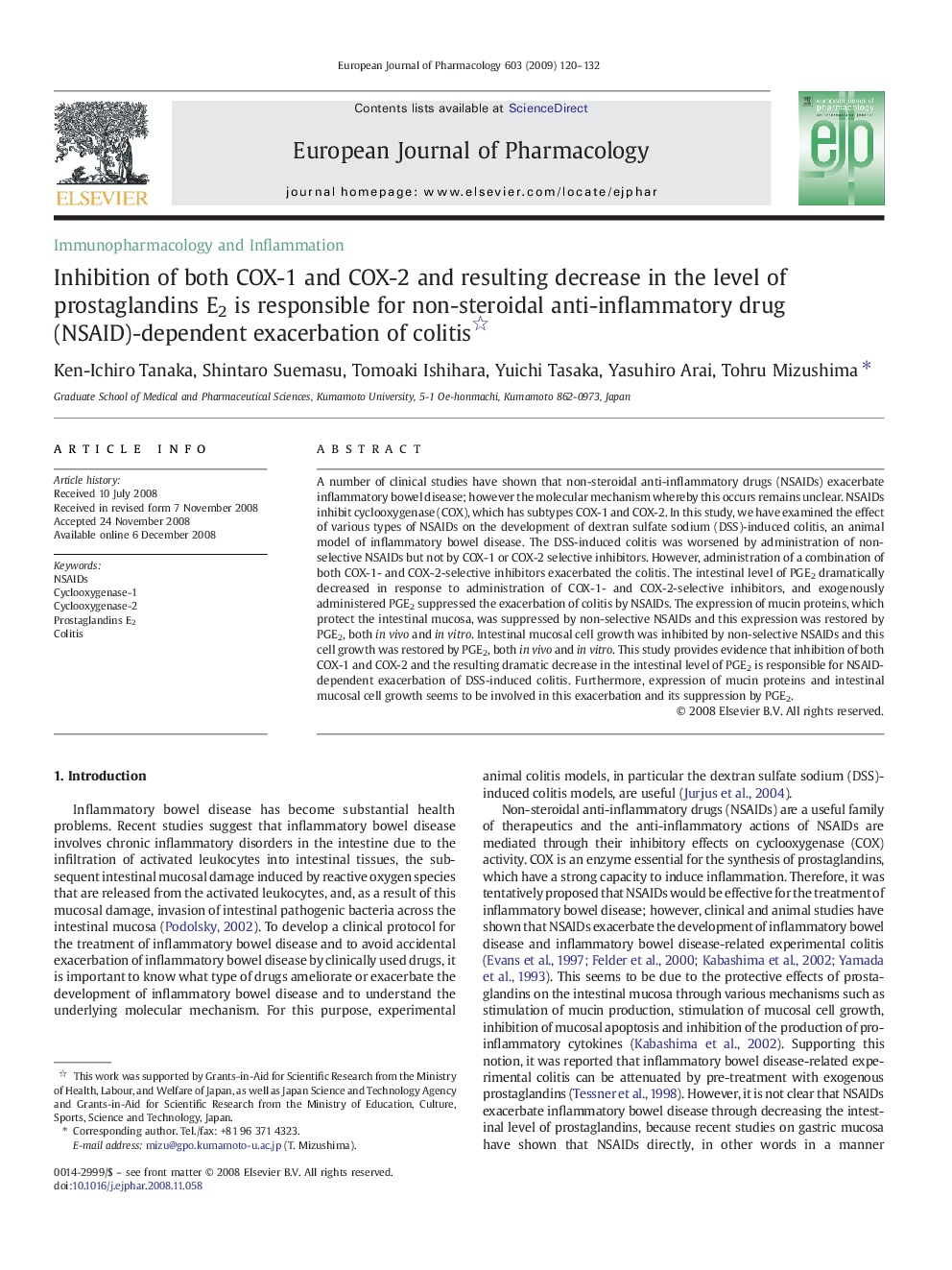| کد مقاله | کد نشریه | سال انتشار | مقاله انگلیسی | نسخه تمام متن |
|---|---|---|---|---|
| 2534484 | 1559092 | 2009 | 13 صفحه PDF | دانلود رایگان |

A number of clinical studies have shown that non-steroidal anti-inflammatory drugs (NSAIDs) exacerbate inflammatory bowel disease; however the molecular mechanism whereby this occurs remains unclear. NSAIDs inhibit cyclooxygenase (COX), which has subtypes COX-1 and COX-2. In this study, we have examined the effect of various types of NSAIDs on the development of dextran sulfate sodium (DSS)-induced colitis, an animal model of inflammatory bowel disease. The DSS-induced colitis was worsened by administration of non-selective NSAIDs but not by COX-1 or COX-2 selective inhibitors. However, administration of a combination of both COX-1- and COX-2-selective inhibitors exacerbated the colitis. The intestinal level of PGE2 dramatically decreased in response to administration of COX-1- and COX-2-selective inhibitors, and exogenously administered PGE2 suppressed the exacerbation of colitis by NSAIDs. The expression of mucin proteins, which protect the intestinal mucosa, was suppressed by non-selective NSAIDs and this expression was restored by PGE2, both in vivo and in vitro. Intestinal mucosal cell growth was inhibited by non-selective NSAIDs and this cell growth was restored by PGE2, both in vivo and in vitro. This study provides evidence that inhibition of both COX-1 and COX-2 and the resulting dramatic decrease in the intestinal level of PGE2 is responsible for NSAID-dependent exacerbation of DSS-induced colitis. Furthermore, expression of mucin proteins and intestinal mucosal cell growth seems to be involved in this exacerbation and its suppression by PGE2.
Journal: European Journal of Pharmacology - Volume 603, Issues 1–3, 28 January 2009, Pages 120–132